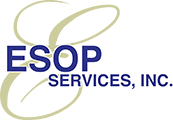Excerpts from an article authored by Corey Rosen, Executive Director, National Center for Employee Ownership.
January 8, 2002
WHAT THE RESEARCH TELLS US
To understand this issue, it’s necessary to start by understanding there are two distinct ESOP universes: private company ESOPs and public company ESOPs. Fewer than 5% of all ESOPs are in public companies. In private companies, ESOPs are sometimes integrated with 401(k) plans, but their principal purpose is something very different. In most cases, the ESOP is used to provide a market for shares of an owner looking to retire or diversity in a successful business. The remaining ESOPs are generally used as an employee incentive that is an add-on to other benefits.
The research on ESOPs in private companies is very clear: employees in an ESOP are more likely, not less likely, to be in other kinds of retirement plans, have much greater retirement assets than they would otherwise, and get paid more.
Data from Joseph Blasi and Douglas Kruse of Rutgers University show that private ESOP companies are much more likely to have 401(k), profit sharing, and pension plans than non-ESOP companies. It’s thus misleading to suggest that ESOPs cause a lack of diversity; in fact, the presence of an ESOP signals companies are more likely to have other kinds of plans, meaning the ESOP is mostly gravy. For instance, 20% of ESOP companies have defined benefit plans, 33% have 401(k) plans, and 33% have profit sharing plans (these are often integrated with a separate 401(k)), and 14% have other retirement plans. Comparable non-ESOP companies do much worse. Only 5% have pension plans, 6% have 401(k) plans, 8% have profit sharing plans, and 2% other kinds of plans.
Data from Washington State are even more telling. A massive study there indicated that ESOP participants get 5% to 12% higher wages than comparable employees in comparable non-ESOP companies, have three times the total retirement assets, and have as much in total diversified investments in the ESOP and other company retirement plans as do comparable employees in comparable non-ESOP companies. So discouraging ESOPs would mean fewer employees would be getting these compensation benefits. If a company were sold to someone else, rather than to an ESOP, employees would end up, in general, with lower wages, less retirement benefits, and no more even in diversified retirement assets.
The Bottom Line
ESOPs have been a great success in private companies. Changing the law to make them less attractive to employers would be a great disservice to employees. 401(k) plans should be diversified retirement plans and do need to be changed. ESOPs are ownership plans. The data for private companies, where 95% of the ESOPs are, show they function just that way, with companies offering separate retirement plans. It’s a law that has worked just as Congress intended.
